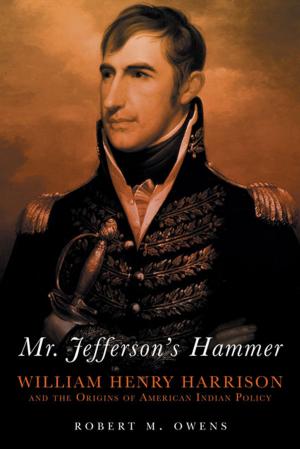Geronimo
The Man, His Time, His Place
Nonfiction, Social & Cultural Studies, Social Science, Cultural Studies, Native American Studies, History, Americas, Native American, Biography & Memoir| Author: | Angie Debo | ISBN: | 9780806186795 |
| Publisher: | University of Oklahoma Press | Publication: | September 6, 2012 |
| Imprint: | University of Oklahoma Press | Language: | English |
| Author: | Angie Debo |
| ISBN: | 9780806186795 |
| Publisher: | University of Oklahoma Press |
| Publication: | September 6, 2012 |
| Imprint: | University of Oklahoma Press |
| Language: | English |
On September 5, 1886, the entire nation rejoiced as the news flashed from the Southwest that the Apache war leader Geronimo had surrendered to Brigadier General Nelson A. Miles. With Geronimo, at the time of his surrender, were Chief Naiche (the son of the great Cochise), sixteen other warriors, fourteen women, and six children. It had taken a force of 5,000 regular army troops and a series of false promises to "capture" the band.
Yet the surrender that day was not the end of the story of the Apaches associated with Geronimo. Besides his small band, 394 of his tribesmen, including his wife and children, were rounded up, loaded into railroad cars, and shipped to Florida. For more than twenty years Geronimo’s people were kept in captivity at Fort Pickens, Florida; Mount Vernon Barracks, Alabama; and finally Fort Sill, Oklahoma. They never gave up hope of returning to their mountain home in Arizona and New Mexico, even as their numbers were reduced by starvation and disease and their children were taken from them to be sent to the Carlisle Indian School in Pennsylvania.
On September 5, 1886, the entire nation rejoiced as the news flashed from the Southwest that the Apache war leader Geronimo had surrendered to Brigadier General Nelson A. Miles. With Geronimo, at the time of his surrender, were Chief Naiche (the son of the great Cochise), sixteen other warriors, fourteen women, and six children. It had taken a force of 5,000 regular army troops and a series of false promises to "capture" the band.
Yet the surrender that day was not the end of the story of the Apaches associated with Geronimo. Besides his small band, 394 of his tribesmen, including his wife and children, were rounded up, loaded into railroad cars, and shipped to Florida. For more than twenty years Geronimo’s people were kept in captivity at Fort Pickens, Florida; Mount Vernon Barracks, Alabama; and finally Fort Sill, Oklahoma. They never gave up hope of returning to their mountain home in Arizona and New Mexico, even as their numbers were reduced by starvation and disease and their children were taken from them to be sent to the Carlisle Indian School in Pennsylvania.















